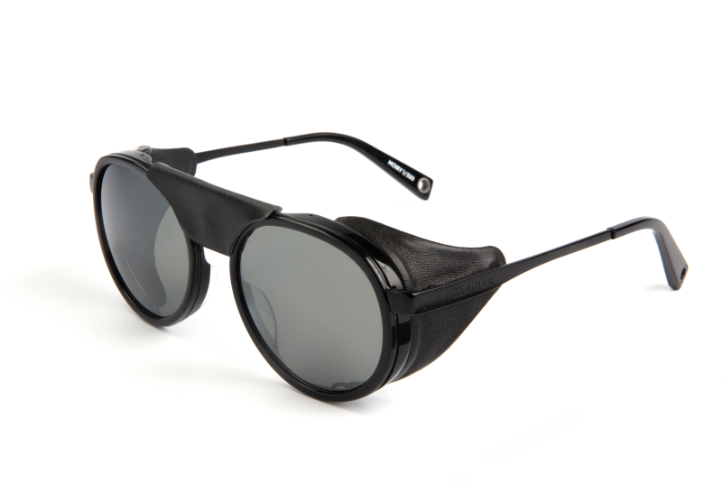Why wear sunglasses after cataract surgery?
·

·
Explanations and tips from our partner Dr. med. Lilly Khamsy, ophthalmologist surgeon FMH.

What is cataract surgery?
Cataracts are characterized by the gradual development of an opacification of the crystalline lens, which, normally clear and transparent, becomes opaque. This opacification limits the penetration of light into the eye, resulting in a reduction in the quality of vision and sharpness of contours.
This usually occurs with age, but can also appear after intraocular surgery. It's also important to remember that cataracts are not a disease, but a natural part of aging.
During the operation, the surgeon makes a small incision in the cornea to access the opacified crystalline lens, removes it with an ultraon probe and replaces it with an artificial lens. The incision is so small that it closes by itself and the patient can go home the same day. The procedure is usually performed under local anaesthetic with drops.

Post-operative care
In addition to the treatments to be applied after cataract surgery, Dr. Med. Lilly Khamsy recommends protecting the eyes in the weeks following the operation. For several reasons, the freshly operated eye is often photosensitive and drier than before:
1. The eye has to get used to receiving as much light as before, as the opacified lens was filtering out a large proportion of the light. After cataract surgery, it is therefore important to wear glasses with high UV protection, thanks to high-quality lenses (preferably category 3 or 4), ideally with side shields to limit rays and draughts.

We recommend category 3 or 4 lenses from our partner Zeiss.
2. The ocular surface may also be slightly irritated by the use of surgical instruments and exposure to air and light during surgery. It is common to experience a gritty sensation in the eyes in the weeks following surgery.
3. The cornea, the surface of the eye, is an extremely sensitive and highly innervated structure, and the tear film that covers it may be disturbed following surgery, making patients hypersensitive to light. Instability of the lacrimal glands causes the eyes to dry out, which can lead to eye discomfort when exposed to light, dust and wind.

"After the operation, it's important to wear glasses that provide maximum protection from light and wind". - Lilly Khamsy, ophthalmologist & mountain enthusiast
Adapted accessories
Initially developed for high altitude expeditions, Moiry mountain sunglasses are recommended for people who have undergone cataract surgery. The Moiry model features category 3 and 4 Zeiss lenses.
Initially developed for high altitude expeditions, Moiry mountain sunglasses are recommended for people who have undergone cataract surgery. The Moiry model features category 3 and 4 Zeiss lenses.
What's more, side protection considerably limits exposure to light rays, while preventing wind from entering from the sides. This helps to improve patient comfort following ophthalmic surgery.

Despite the optimum protection offered by our Moiry model, it is not advisable to go to a brightly lit place such as a glacier after cataract surgery. You'd be better off staying at home for a few days and playing cards with our Jass card game leather case :)





